Q&A: Türkiye's BRICS bid - Strategic moves and implications for NATO ties Examining Turkish moves and impact on global unions
Türkiye's application for BRICS membership has raised questions about its strategic intentions and the broader implications for its role within NATO and its relationships with other global powers. As Türkiye navigates this complex geopolitical landscape, it is crucial to understand the motivations behind its bid, the potential outcomes, and how it may affect global alliances.
Q: Why has Türkiye applied for BRICS membership at this particular juncture?
A: Türkiye's decision to apply for BRICS membership at this time reflects a strategic pivot in its foreign policy. The global economic and geopolitical environment has rapidly evolved, with emerging markets and non-Western alliances like BRICS gaining more influence. Türkiye sees BRICS as an opportunity to diversify its economic partnerships and reduce its dependence on traditional Western allies.
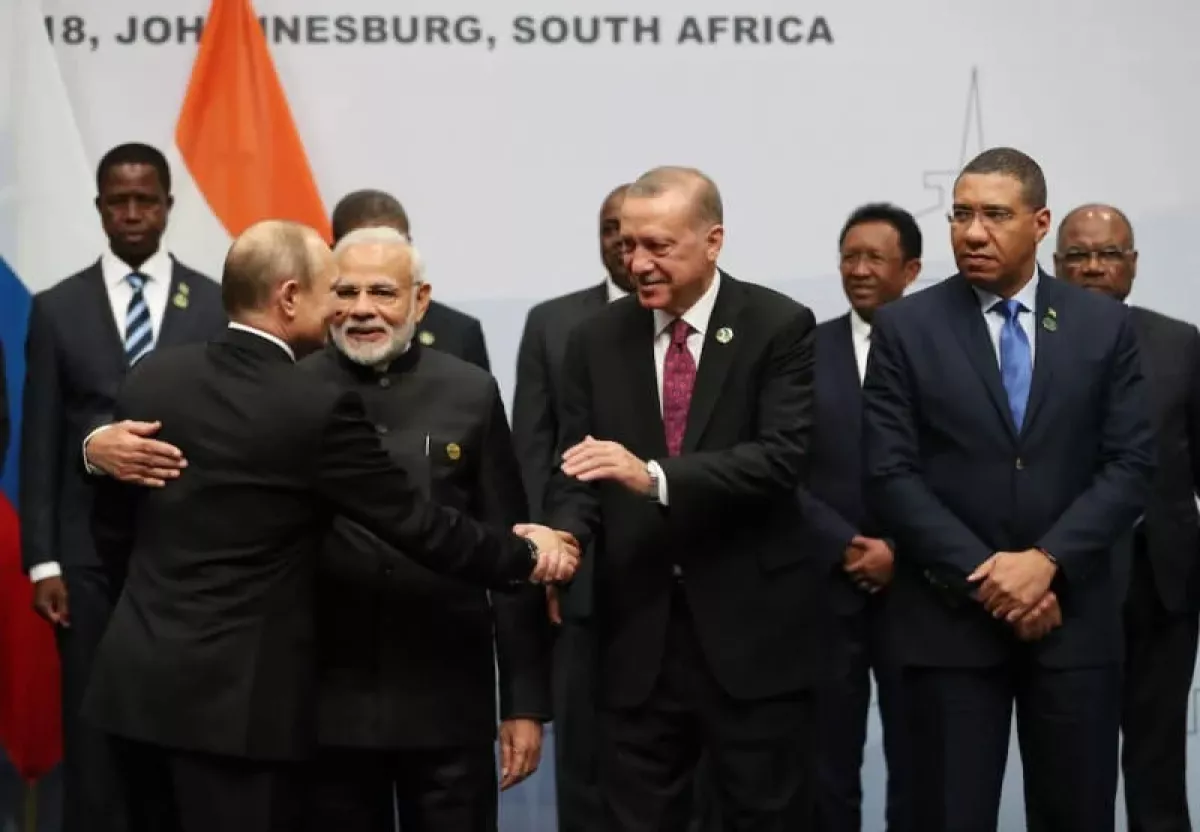
Additionally, the growing multi-polarity in global affairs encourages Türkiye to seek new platforms where it can assert its influence and align with other major developing economies. The timing also coincides with Türkiye's desire to play a more prominent role in global economic governance, especially as it continues to face challenges in its relationship with the European Union. By joining BRICS, Türkiye aims to enhance its strategic autonomy and secure a seat at the table in shaping global economic policies.
Q: What does Türkiye’s BRICS bid would mean for a NATO member like Türkiye, and how might it affect other NATO members?
A: Türkiye's bid for BRICS membership presents a complex dynamic within NATO, of which it has been a long-standing member. On one hand, this move signals Türkiye's intent to diversify its alliances and seek greater autonomy in its foreign policy, which could create tensions within NATO, particularly among members who view BRICS as a counterbalance to Western influence.
Türkiye's involvement in BRICS could be seen as a strategic hedge against its NATO commitments, potentially allowing it to leverage its position within both organizations. This bid also reflects Türkiye's dissatisfaction with the current state of its relationships within NATO, where it often feels sidelined or at odds with other members over key issues such as defense procurement, regional security, and political alignment.
For other NATO members, Türkiye's BRICS bid could raise concerns about alliance cohesion and the potential for diverging interests within the group. However, it could also serve as a wake-up call for NATO to address Türkiye's concerns and work more closely to keep the alliance unified in the face of growing global challenges.
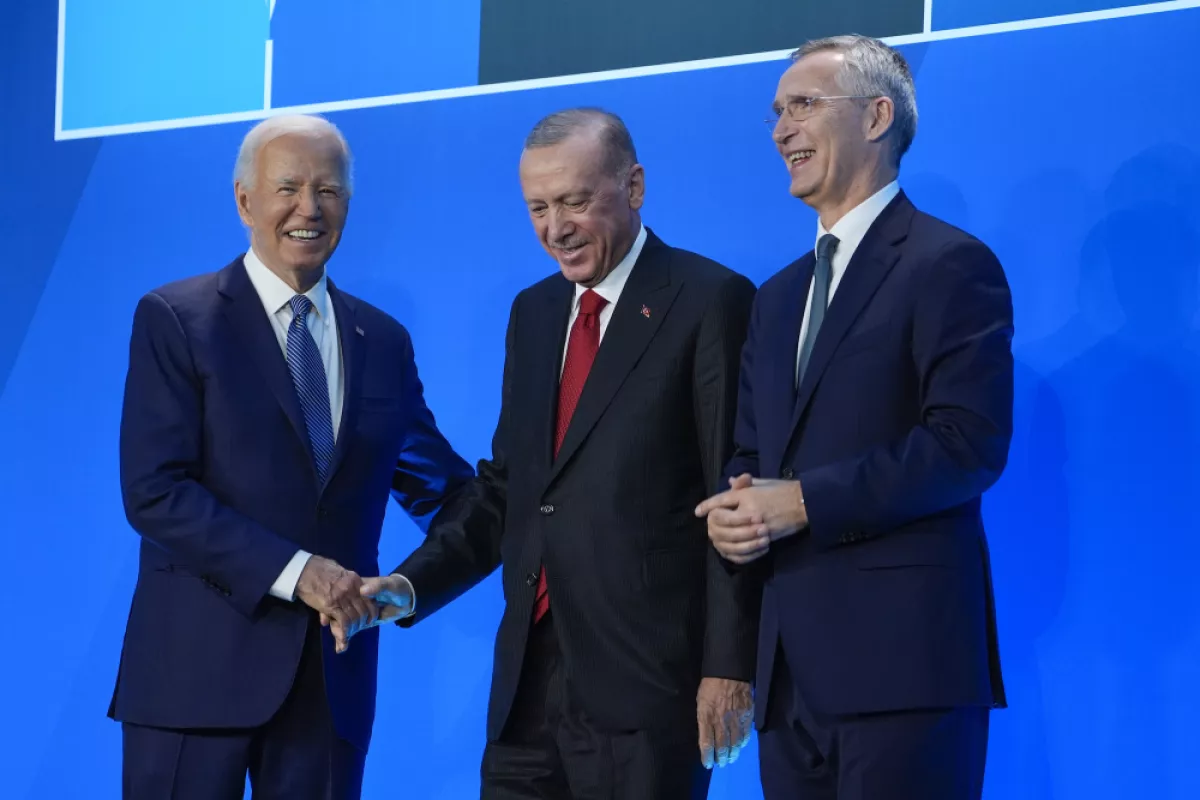
Q: What are Türkiye’s strategic calculations and expectations from joining BRICS?
A: Türkiye's strategic calculations for joining BRICS are driven by several key factors. First, Türkiye sees BRICS as a platform to expand its economic influence, particularly in non-Western markets that are increasingly important for its growth. By aligning with BRICS, Türkiye hopes to tap into new trade opportunities, access alternative sources of investment, and enhance its role in global supply chains.
Secondly, Türkiye expects that BRICS membership will bolster its geopolitical standing, allowing it to engage more directly with major global players like China, India, and Russia on issues of mutual interest. This could include energy security, infrastructure development, and regional stability, areas where Türkiye seeks to play a leading role.
Additionally, Türkiye views BRICS as an avenue to advocate for a more equitable global governance system, one that better represents the interests of emerging economies. This aligns with Türkiye's broader foreign policy goal of becoming a bridge between East and West, leveraging its unique geopolitical position to influence global affairs. Ultimately, Türkiye expects that BRICS membership will enhance its strategic autonomy, allowing it to pursue a more balanced and diversified foreign policy.
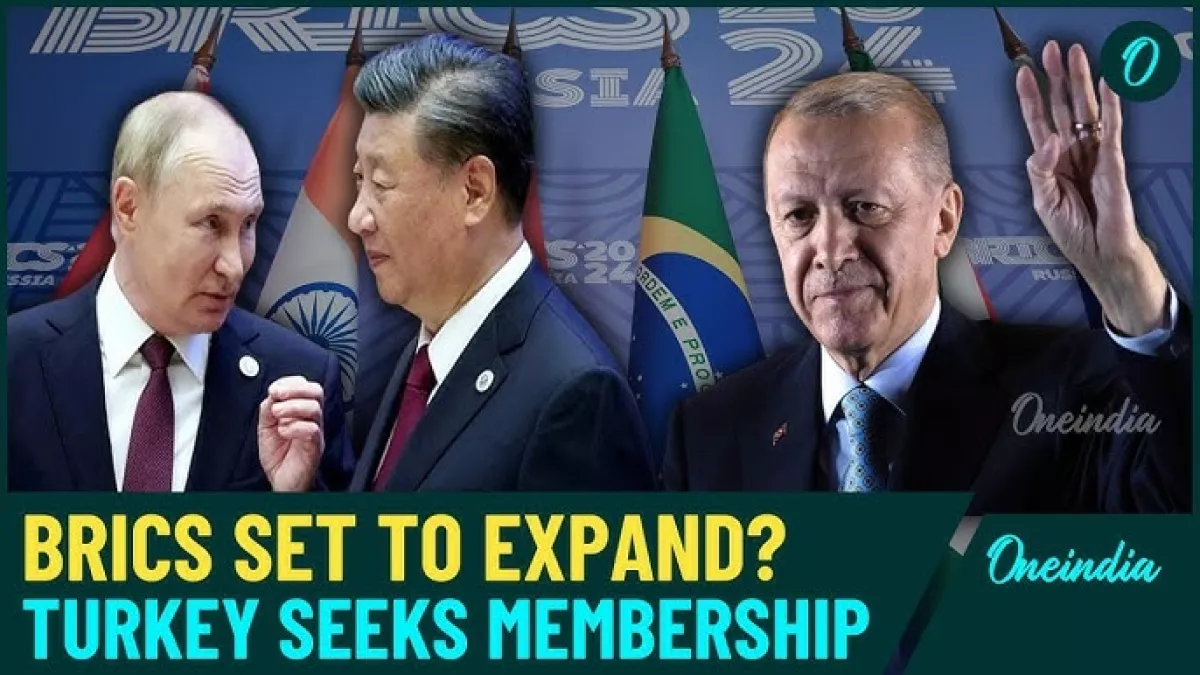
Q: What does Türkiye’s BRICS bid signal to the organization’s founding members China and India, and could it lead to increased rivalry between them?
A: Türkiye’s BRICS bid sends a nuanced signal to founding members China and India, both of whom have complex relationships with Türkiye and with each other. For China, Türkiye's entry into BRICS could be seen as an opportunity to deepen economic and strategic ties, particularly through initiatives like the Belt & Road Initiative, where Türkiye plays a key role as a gateway between Asia and Europe. China may view Türkiye’s inclusion as a way to strengthen BRICS’ collective influence in global economic governance and as a potential ally in countering Western economic dominance.
On the other hand, India might have mixed feelings about Türkiye's entry. While India could benefit from increased cooperation with Türkiye in areas like trade and energy, it may also be cautious about Türkiye's close ties with Pakistan and its assertive role in the Muslim world. The potential rivalry between China and India within BRICS could be exacerbated if Türkiye aligns more closely with one over the other, particularly on contentious issues like border disputes or regional influence. However, both China and India are likely to weigh the strategic benefits of Türkiye’s inclusion against the risks of internal competition, seeking to manage any tensions that arise while leveraging Türkiye’s membership to advance their broader geopolitical goals.
Q: Has Türkiye’s stalled EU membership bid influenced its decision to seek BRICS membership?
A: Türkiye's long-standing frustrations with its stalled EU membership bid have undoubtedly influenced its decision to pursue BRICS membership. After decades of negotiations and unmet expectations, Türkiye has grown increasingly disillusioned with the EU accession process. The lack of progress has prompted Türkiye to reassess its foreign policy priorities and explore alternative avenues for international cooperation and economic development. BRICS, with its emphasis on South-South cooperation and its growing economic clout, presents an attractive alternative for Türkiye.
By joining BRICS, Türkiye can diversify its alliances, reduce its reliance on Western institutions, and assert itself as a key player in a multipolar world. The move also reflects Türkiye's desire to align with other emerging economies that share its aspirations for greater representation in global governance. While Türkiye has not abandoned its EU ambitions entirely, the BRICS bid signals a strategic shift towards a more balanced foreign policy, one that seeks to leverage opportunities in both the East and the West. This dual approach allows Türkiye to maintain its traditional ties with the West while actively engaging with non-Western powers to enhance its global influence and secure its national interests.
Q: What are the potential impacts of Türkiye and Azerbaijan’s BRICS membership bids on the organization’s dynamics?
A: Almost simultaneous BRICS membership bids by Türkiye and Azerbaijan could significantly impact the organization’s dynamics, bringing both opportunities and challenges. For BRICS, the inclusion of Türkiye and Azerbaijan would add strategic depth and geographic diversity to the group, potentially expanding its influence in the Middle East, Central Asia, and the Caucasus.
Türkiye, with its large economy and strategic location, could serve as a bridge between BRICS and the European Union, while Azerbaijan’s energy resources and geopolitical position could enhance BRICS’ energy security and economic connectivity. However, the addition of two new members, particularly from regions with complex geopolitical landscapes, could also introduce new challenges. Türkiye and Azerbaijan’s close ties with Western institutions, such as NATO, may create tensions within BRICS, especially with members like Russia and China, who often find themselves at odds with the West.
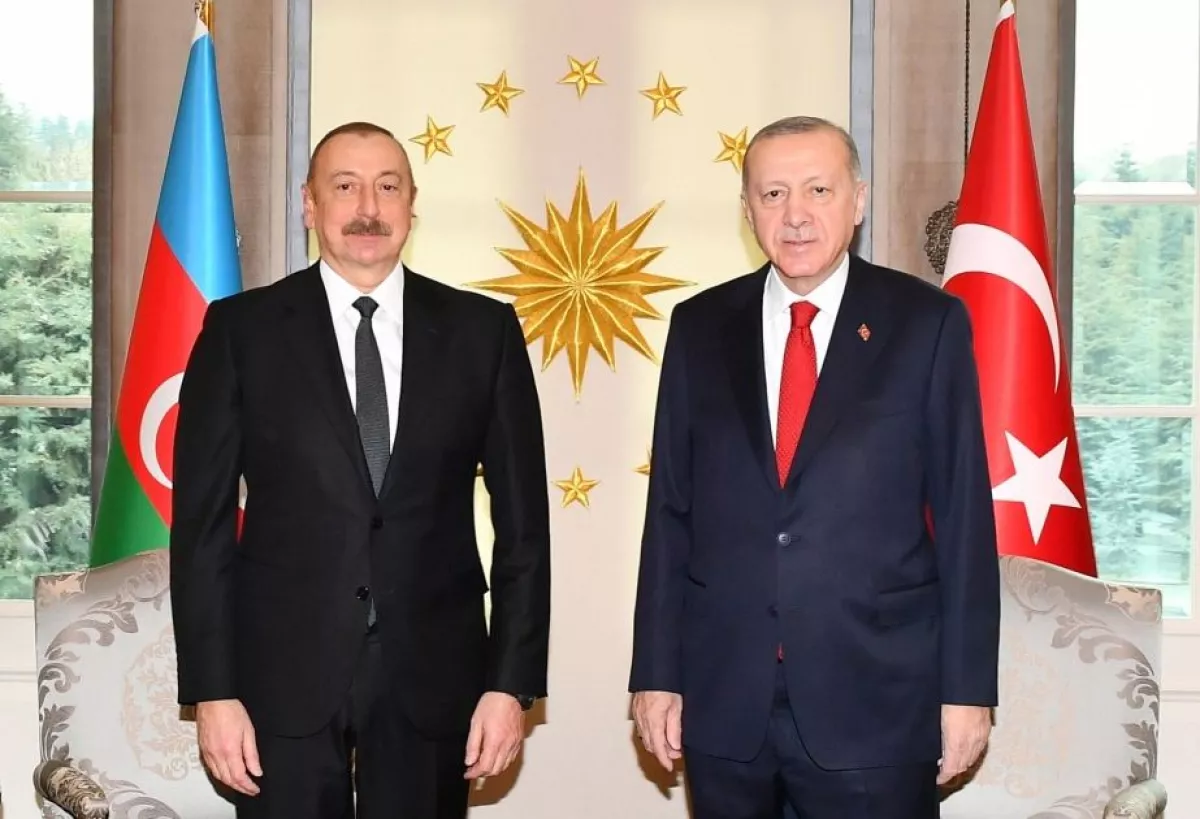
Additionally, the inclusion of Türkiye and Azerbaijan could shift the internal balance of power within BRICS, prompting existing members to reassess their strategies and alliances within the group. Ultimately, the impact of Türkiye and Azerbaijan’s membership in BRICS will depend on how well the organization can integrate these new members while managing the potential risks and opportunities they bring to the table.
Q: What are the broader implications of Türkiye’s BRICS bid for its relationship with the EU and the US?
A: Türkiye’s BRICS bid carries significant implications for its relationships with the European Union (EU) and the United States. For the EU, Türkiye's move to align itself with BRICS could be seen as a signal that Ankara is seeking alternative partnerships in response to the stalled EU accession process and ongoing tensions over issues such as human rights, migration, and regional security. This could lead to further strain in EU-Türkiye relations, especially if Türkiye's BRICS membership results in closer ties with countries like Russia and China, which have adversarial relationships with the EU.
For the United States, Türkiye's BRICS bid could raise concerns about Ankara’s commitment to NATO and its role as a key ally in the Middle East. Washington may view Türkiye’s alignment with BRICS as a strategic pivot away from the West, potentially complicating cooperation on security and defense matters.
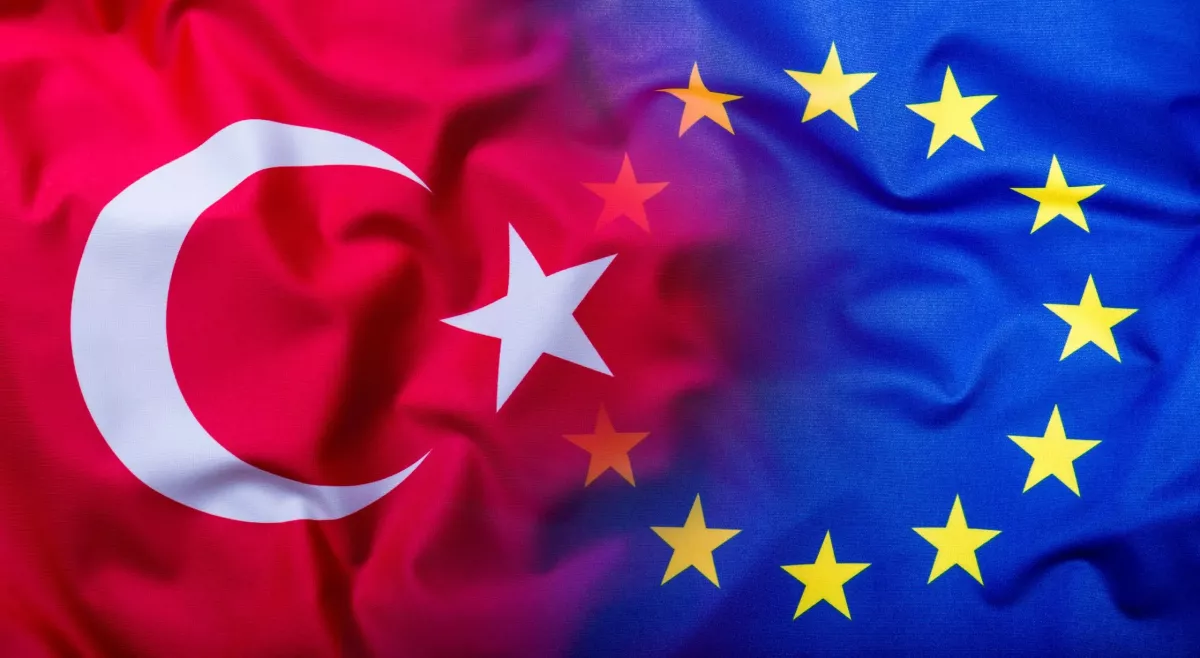
However, Türkiye may argue that its BRICS bid is part of a broader strategy to enhance its global influence and does not necessarily signal a shift away from its traditional alliances. The challenge for both the EU and the US will be to navigate this evolving relationship with Türkiye, finding ways to maintain constructive engagement while acknowledging Türkiye’s pursuit of a more diversified foreign policy.
Q: How might Türkiye’s inclusion in BRICS influence its regional leadership role, particularly in the Middle East and Central Asia?
A: Türkiye’s inclusion in BRICS could significantly bolster its regional leadership role in both the Middle East and Central Asia. As a member of BRICS, Türkiye would gain access to a powerful platform for shaping global economic policies and could leverage this influence to assert itself as a key regional power. In the Middle East, Türkiye’s BRICS membership could enhance its ability to mediate conflicts, promote economic integration, and advocate for the interests of Muslim-majority countries. This could strengthen Türkiye’s leadership credentials within the Organization of Islamic Cooperation (OIC) and other regional bodies.
In Central Asia, Türkiye’s BRICS membership could facilitate closer ties with the region’s Turkic-speaking nations, allowing Ankara to promote regional cooperation and investment in areas such as energy, infrastructure, and trade. Moreover, Türkiye’s participation in BRICS could provide an alternative model of development and governance for countries in both regions, one that emphasizes South-South cooperation and multipolarity.
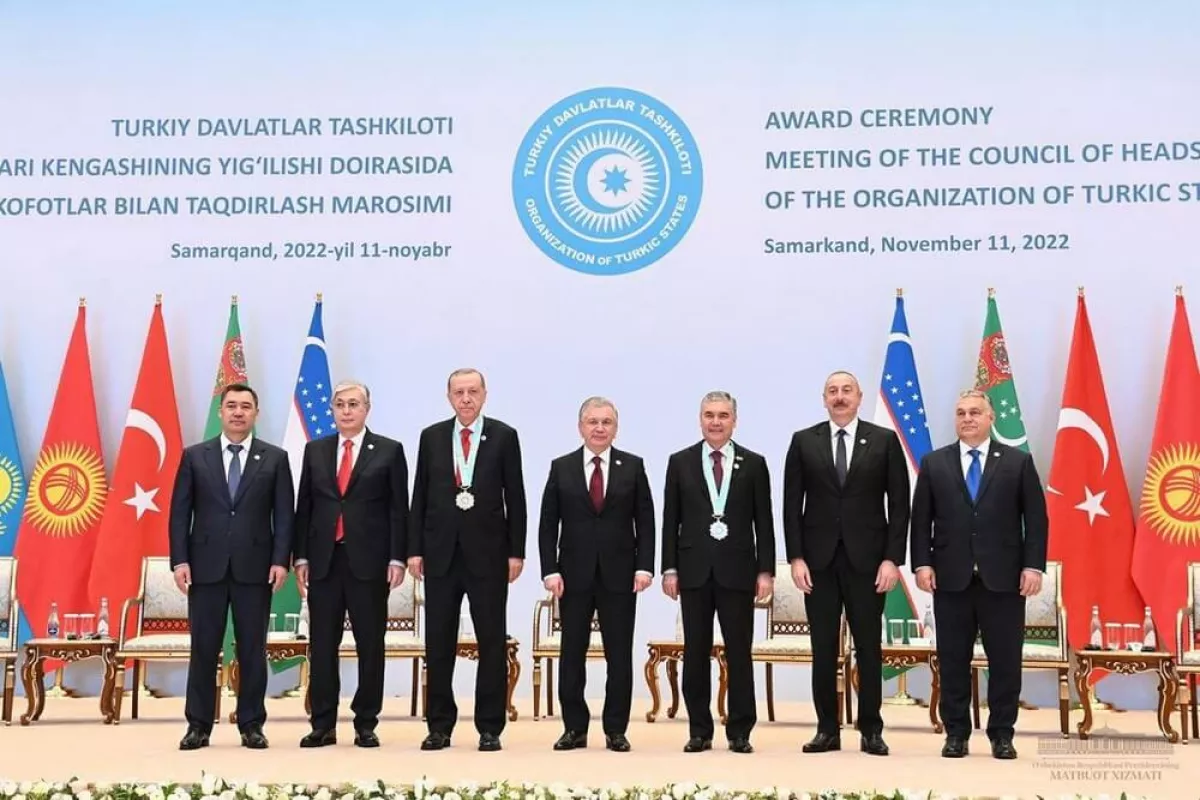
However, Türkiye’s regional leadership ambitions could also face challenges, particularly if its BRICS membership leads to tensions with other regional powers or if it is perceived as aligning too closely with countries like Russia or China, which have their own strategic interests in these regions. Overall, Türkiye’s inclusion in BRICS has the potential to enhance its regional influence, but it will need to carefully manage the complex dynamics at play to achieve its leadership goals.








